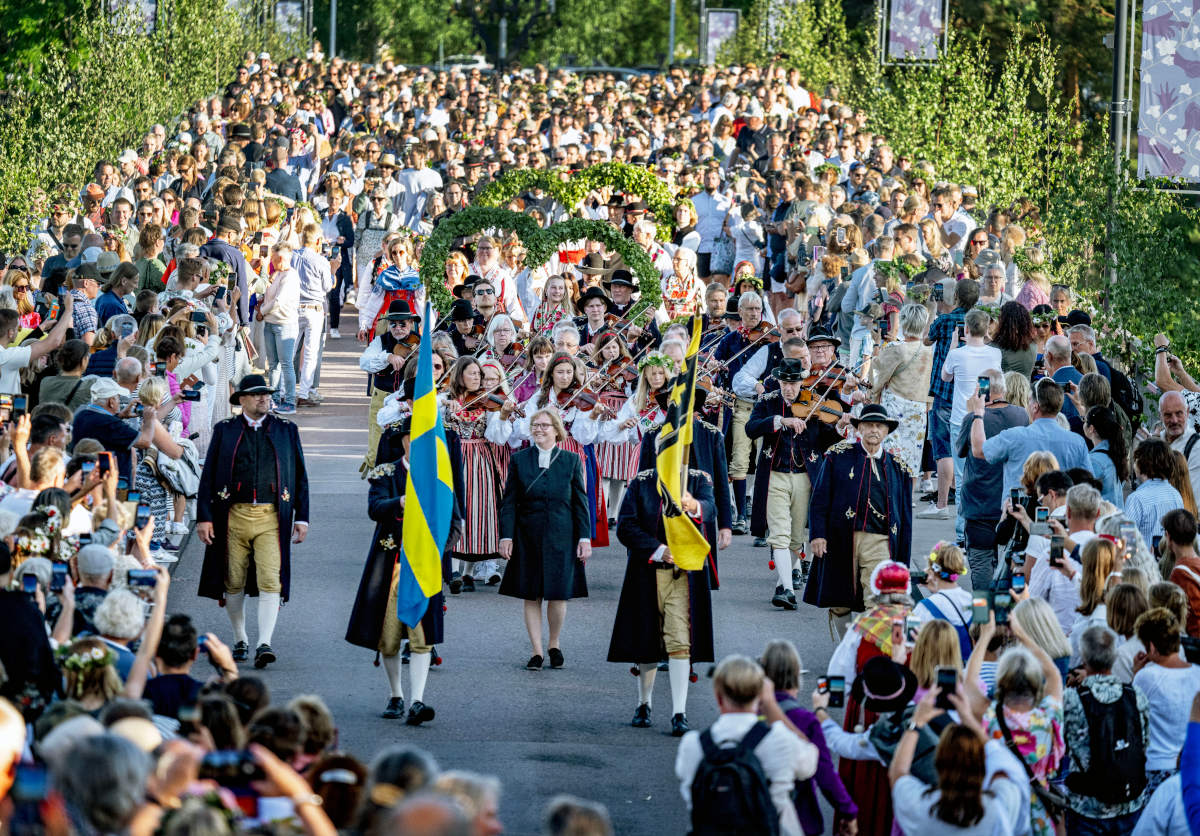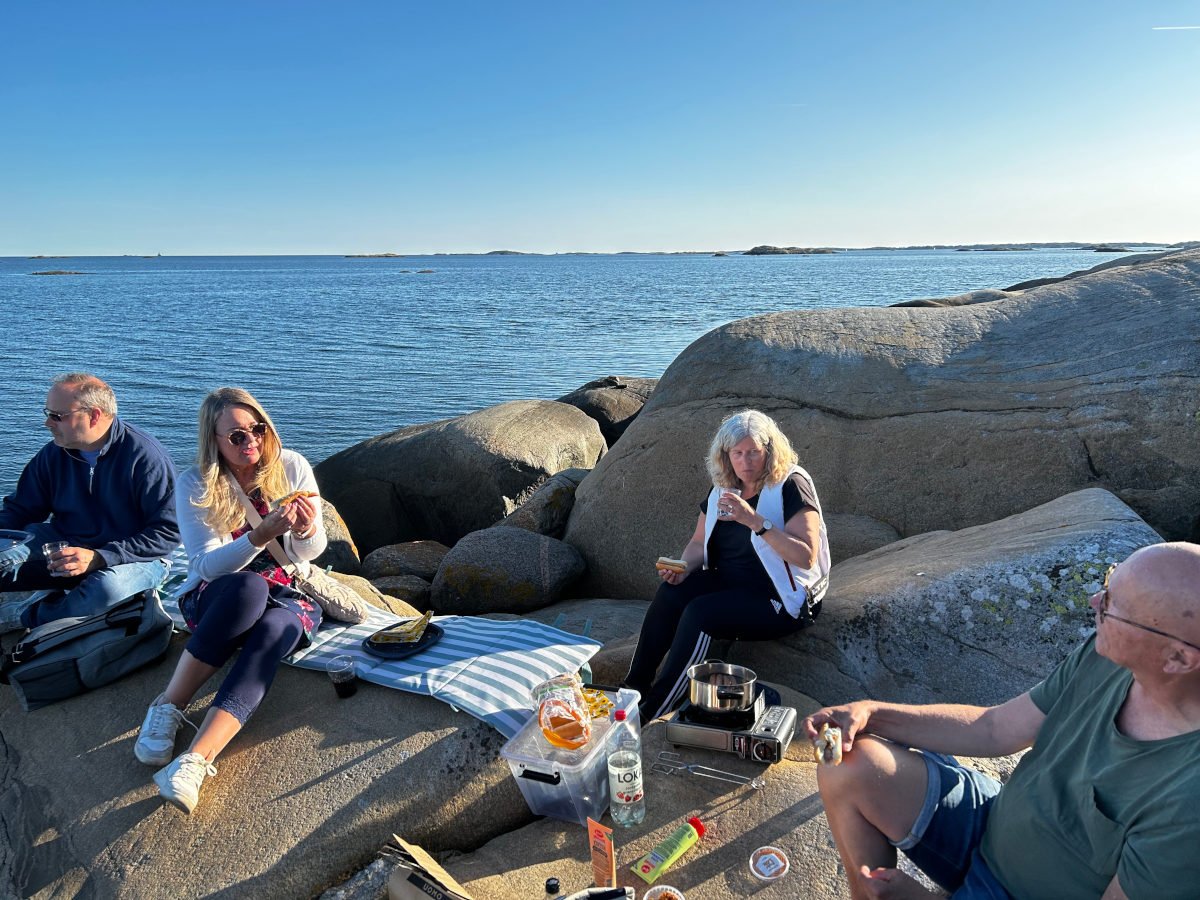Many thanks to everyone who responded to our survey, out of which more than a third (we heard from 74 readers in total, representing at least 25 nationalities) said they had tried to make themselves more Swedish to fit into life in Sweden.
Some said it was a conscious decision out of respect for their new country.
“I think it’s important to be aware of the social customs and rules of a society that one has decided to join and to integrate and assimilate as much as possible, but one can always balance this with ways to maintain your original identity,” said Diane from Australia.
“But I think it’s important that since we have made the decision to live in a new place that we give it the respect and value that it deserves by learning and understanding the written and unwritten rules and looking to largely follow them (there’s always some wiggle room of course – common sense must prevail!).”
Many readers mentioned dressing in more muted than bright colours, speaking more quietly, avoiding bragging about themselves, respecting other people’s privacy more, avoiding conflict or simply just learning to speak the language or observing Swedish traditions and customs such as Midsummer’s Eve or fika breaks, as things they had started doing differently since moving to Sweden.
Some people said that the change had happened organically over time, as a natural part of picking up new habits and customs from the new environment around you, and many people said they had found it to be a positive experience.
“Changed the way I dress, work out where I need to be on the train in order to be close to the exit when I get off the train, work in week numbers and not a specific date and more wary when approaching strangers,” said Ami, a teacher from South Africa. “In some ways I’ve enjoyed being more Swedish. I felt more pressure with changing the way I dress but I have enjoyed it.”
Some said it was a deliberate decision which had paid off in terms of feeling more at home in Sweden but also in terms of developing as a person and discovering new sides of themselves.
Pinelopi, a reader from Greece who lives in Värmland in central Sweden, said she felt like becoming more Swedish – for example by taking part in traditions, talking about the weather and mimicking Swedish sounds like saying “ah” for “yes” – had opened up more opportunities for her to feel like she lived in the country “for real”, and that Swedes had responded by being more friendly and open to her.
“Even though you can live in Sweden without being fluent in Swedish, learning the language really opened up a lot of opportunities for social network building,” she added. “I wanted to build a life here and I live by ‘when in Rome…’ I feel lucky because I can choose aspects of being Swedish that work well for me as well as integrating aspects of being Greek into my identity that Swedes seem to respect and even admire, for example being decisive and not being afraid to speak up if something doesn’t feel right.”
READ ALSO:
She wasn’t the only one who pointed out that having your feet in two cultures could be a bonus as it meant being able to pick the best of both, although those who said this also acknowledged that they were able to do so because their home culture was generally well respected in Sweden.
“Appear less egotistical in CV. Talk less loudly. Don’t work more hours or ‘harder’ than colleagues. Lower expectations, go for lagom rather than the best,” said Kristen from the US, who said she made the choice to change consciously and without any social pressure.
“It’s just a part of integrating in another culture. You look around to see what others do and try to follow along and fit in. I also chose to learn Swedish. Sometimes I feel that I am not acting like my true self here in order to fit in and be successful. On the other hand, I can definitely get away with behaviour outside the socially acceptable norm, because I am American, and not Swedish,” she said.
Theodore, a PhD student and another reader from the US, said that he saw it as personal growth:
“We Americans can struggle culturally with a desire to overshare our accomplishments and speak too much to keep conversations going. Sweden’s egalitarian culture of humble quietude provides a really great way for me to reflect on my own ‘American’ impulses and how I move through the world because of them. These differences can be found between cultures everywhere and I believe it provides a great opportunity for personal growth, even when adjustments can be hard.”
Gaurav from India said that for him, it had happened automatically “but probably driven by a subliminal urge to fit in which is much more potent than I’d ever accept, coming from the diverse concoction that is India” and added that it had on the whole had both positive and negative effects on him.
“In the cases where fitting in has made my life better (more runs, better diet), it’s been fun! But in some of the cases where I find myself withdrawing to a more private life where I pretend to ride on a high horse and ignore others or judge them – it’s been a conscious struggle to remind myself who the real me is and not go too far into the jantelagen way of life!” he said.
Khalid, a Palestinian engineer in Jönköping, said it was the absence of pressure from his closest circle to fit in which made him feel comfortable to pick up Swedish habits and traits.
“Speaking the language, participating and even taking up a role on the board at one of the local sports associations. Taking up a Swedish nickname, being on time. Waiting for others to finish their sentences then saying ja precis, buying local products and dining at Ikea once a week,” he said.

Nick from the UK said he kept himself more private and less gregarious or spontaneous than in his pre-Swedish life, but that fitting in had mostly come with increased familiarity of the system.
“It was initially a conscious decision but over time it’s become the norm of how I behave, and many of the friends I’ve kept from prior to my move to Sweden seem louder than I remember them being previously. I do still like to strike up a conversation with a random stranger, however,” he said.
Some saw adapting to more Swedish ways of life as a pragmatic means to an end.
“Staying calm even when I am angry about somebody, never shouting as I would do in my home country,” said Erwin from Switzerland, who said he had realised that staying calm and avoiding conflict would help him get further. “Sometimes I explode inside, but am happy to get what I want.”
But not everyone was happy with how they had changed since moving to Sweden. A common regret was that the pressure to integrate and assimilate had caused them to feel like they had lost part of their own personality and been forced into being less outspoken and friendly.
“I feel my soul is dead and I am a robot now most of the time,” said an Indian engineer in Stockholm. “Subconsciously I now have an emotionless face in public transport which is like a ‘don’t disturb me’ face. I used to be a happy and open person before moving here.”
“I have become quieter and less outlandish and less contrarian,” said a reader who preferred to remain anonymous. They said that the change hadn’t been the result of outside pressure and had happened automatically, but had nevertheless left them depressed and frustrated.
“I feel like being more Swedish has dulled my shine, the unique part of my personality that made me, me,” they said.

A teacher based outside Stockholm said she had slowly become less verbal and enthusiastic in work meetings as she found there was very little reaction to her enthusiasm and energy.
“It has been both positive and negative,” she said. “On the positive side I have taken a more passive and observing role which means I don’t feel I have to contribute. On the negative side, I have many great ideas for developing the organisation which I don’t share any more.”
“I am not as friendly any more. When I first moved here I was really friendly and went out of my way to say hi to people. I got shut down so many times that I stopped doing it,” said Molly, an American reader living in the countryside outside Halmstad in south-western Sweden.
“I feel like I’m not my full self, less joyful as I can’t share my sense of humour. I’m not usually successful in making jokes in Swedish. Previously I enjoyed making people laugh, being witty,” she said.
READ ALSO:
- How to make friends in Sweden – seven things I wish someone had told me
- Readers’ insights: ‘Sweden is decades behind on racism and diversity’
A French reader said he used less sarcasm than he used to and that he was more careful watching his words to avoid offending anyone, including being less direct and spontaneous overall.
“I wouldn’t say it was imposed on me, but I felt like it was a way to fit in, which is a psychological construct and not a necessity (embrace your differences),” he said.
Some people said the experience had left them feeling lonely, including a Gothenburg-based reader from Hong Kong who said she now avoided asking people personal questions, and a British teacher in Stockholm who said she had stopped making eye contact or trying to talk to strangers, because “Swedes do this to me so no point in trying any more”.
While the majority of people said they had tried to change themselves in order to fit in, some people said they hadn’t.
Some said it was because they simply felt no need to, either because they came from a country similar enough to Sweden, or because they felt they were accepted anyway.
A couple of people said they hadn’t tried to change because they had no Swedish friends to learn from or to fit in with, and some said they refused to compromise themselves to appease others.
“I am not going to change who I am to fit in. It took me some time but I found friends, both international and Swedish that share the same values and interests. I have also learned Swedish, as I like languages,” said a French-Lebanese reader in Stockholm.
“I think diversity in society is really healthy, so I have avoided trying to become more Swedish because Swedish society is so homogeneous,” said Alexander, an American reader in Stockholm.
“While there are some great things about Swedish society, Swedes could benefit greatly from an increased exposure to greater cultural and intellectual diversity,” he added. “I think Swedes have much more to gain from opening themselves up to new ideas and cultures from around the world than foreigners do by conforming to extremely narrow and restrictive Swedish norms and ideals.”
Rakesh, an Indian-Swedish IT architect in Stockholm, said he had found “no need to change and practically it’s not possible for anyone to change, it’s just we need to respect others and be mindful with our public and social behaviour”.
“We as members of this society need to understand our rights and responsibility. Respecting diversity is already part of Indian society,” he said. “Apart from language and food, I never felt any adjustment was needed to become part of this society.”
Have you made yourself more Swedish to fit in? Join the conversation in the comments below.





 Please whitelist us to continue reading.
Please whitelist us to continue reading.
For the most part the Swedish-fying of me happened organically and mostly positive but at one point I certainly felt like I lost a part of myself along the way where I wasn’t sure who I was anymore and then I flipped. I decided then I had to take back control and decided I will do what I am comfortable with and what makes me happy and sane without being offensive. Like dressing in colours again, give my opinion when I know it would not be taken negatively etc. I am fortunate enough to work in a very diverse company and team so that helped too.